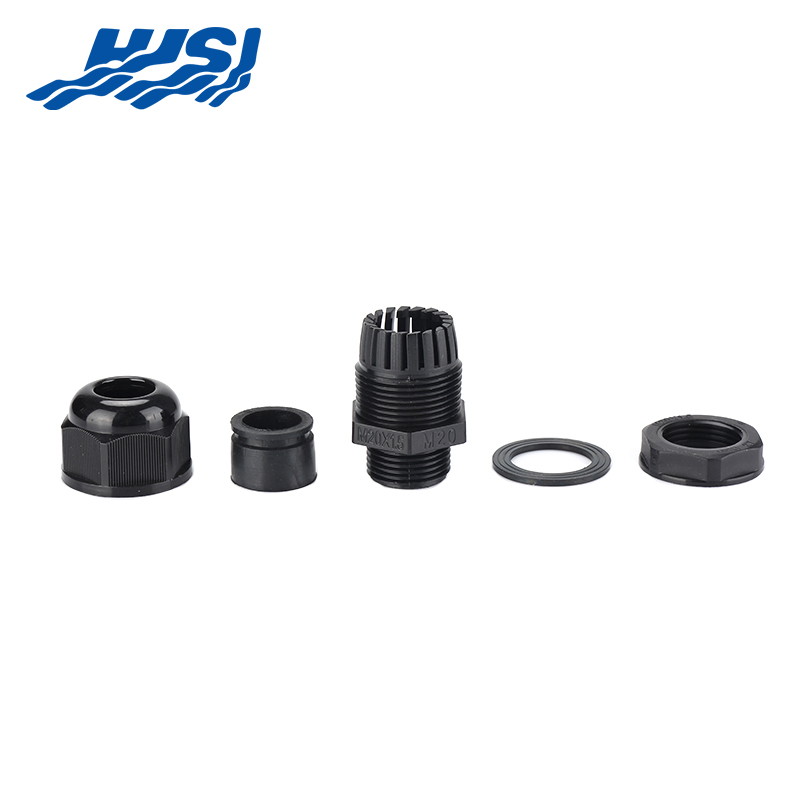In the world of industrial applications, the integrity of electrical connections is paramount. One of the critical components ensuring this integrity is the plastic cable gland. These connectors are designed to provide a secure and reliable seal around cables that pass through walls or other barriers, and they are particularly adept at resisting the corrosive effects of various chemicals.
The Significance of Plastic Cable Glands in Chemical Resistance
Plastic cable glands are engineered to maintain their structural integrity and sealing performance even when exposed to harsh chemical environments. This characteristic is not just a bonus feature but a necessity in industries where chemicals are a daily presence. Chemical processing, pharmaceutical manufacturing, and food and beverage production are just a few sectors where the use of plastic cable glands is not only beneficial but essential.
Chemical Industries and the Need for Durability
In chemical processing, the environment is often rife with oil, acids, alkalis, and solvents. These substances can corrode or degrade many materials, leading to potential safety hazards and equipment failure. Plastic cable glands, with their inherent chemical resistance, provide a robust solution to this problem. They ensure that electrical connections remain secure and that the risk of leakage or damage is minimized.
Pharmaceutical Applications
The pharmaceutical industry also relies heavily on plastic cable glands. Here, the need for cleanliness and sterility is paramount, and any chemical exposure could compromise the integrity of products. Plastic cable glands, with their resistance to a wide range of chemicals, help maintain the pristine conditions required for drug manufacturing.
Food and Beverage Manufacturing
Similarly, in food and beverage manufacturing, where hygiene is crucial, plastic cable glands play a significant role. They protect against the ingress of contaminants that could be introduced by the chemicals used in cleaning and sanitization processes. The ability of plastic cable glands to resist these chemicals is a key factor in maintaining the quality and safety of the products.
Design and Manufacturing of Plastic Cable Glands
The design of plastic cable glands is tailored to provide maximum resistance to chemical erosion. They are manufactured using high-quality plastics that have been specially formulated to withstand the rigors of chemical exposure. These materials are not only resistant to chemicals but also maintain their flexibility and durability, ensuring that the plastic cable glands remain effective over time.

Sealing Performance and Structural Integrity
One of the most critical aspects of plastic cable glands is their sealing performance. In environments where chemicals are prevalent, a secure seal is essential to prevent leakage and maintain the safety of the equipment and personnel. The design of plastic cable glands incorporates features that ensure a tight seal, even when subjected to the corrosive effects of chemicals. This sealing performance is maintained across a wide range of temperatures and pressures, further enhancing their utility in chemically challenging environments.
Installation and Maintenance
The installation of plastic cable glands is relatively straightforward, requiring minimal maintenance over time. The ease of installation and low maintenance requirements are another advantage in industries where downtime can be costly. Regular inspections can help identify any signs of wear or degradation, allowing for prompt replacement or repair, thus ensuring the continued effectiveness of the plastic cable glands.
Plastic cable glands are a vital component in industries that face the challenges of chemical exposure. Their ability to resist a variety of chemicals, maintain a secure seal, and preserve structural integrity in the face of corrosive environments makes them an indispensable tool. By choosing plastic cable glands, industries can ensure the safety and reliability of their electrical connections, protecting both their equipment and their bottom line.
In conclusion, the resilience of plastic cable glands in chemically challenging environments is a testament to their design and manufacturing. As industries continue to evolve and face new challenges, the role of plastic cable glands will only become more critical. Their ability to withstand the corrosive effects of chemicals, maintain a secure seal, and preserve structural integrity is a key factor in ensuring the safety and efficiency of operations in chemical-processing, pharmaceutical, and food and beverage manufacturing sectors.